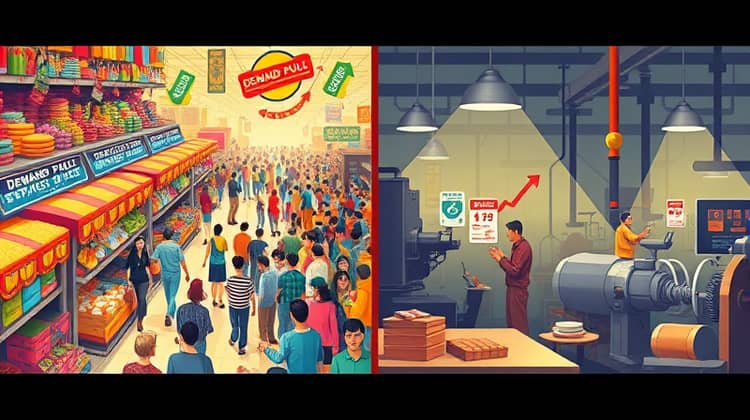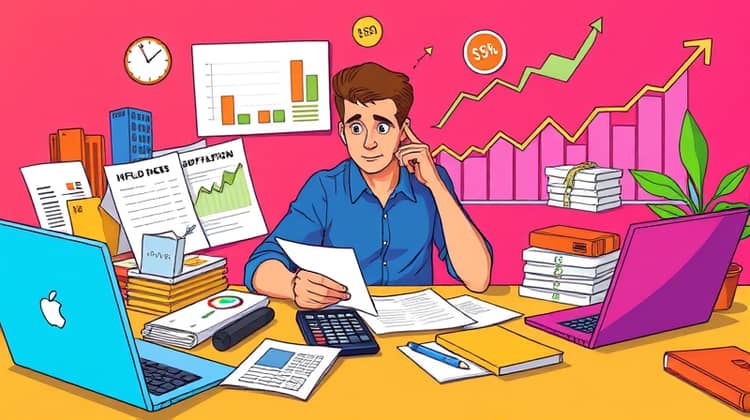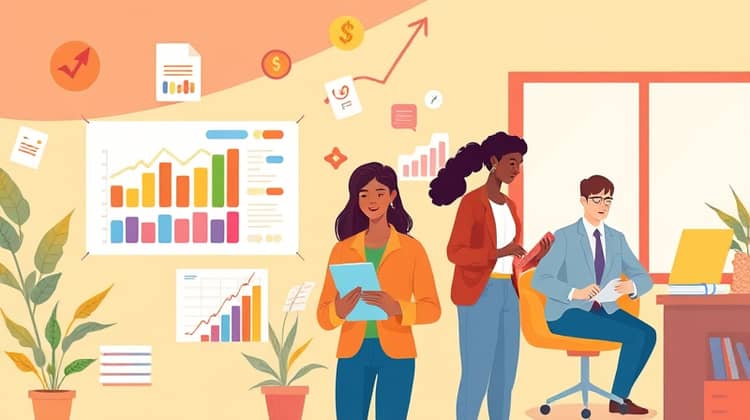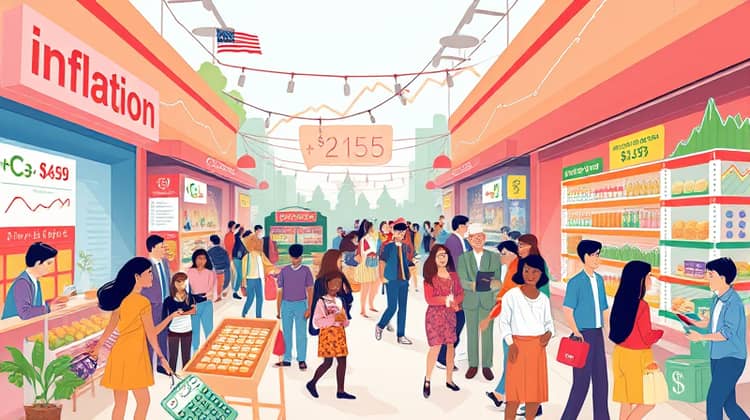The Impact of Inflation on Your Wallet: What You Need to Know

Inflation is a term that we hear often, but its implications on our finances can be confusing. In essence, inflation measures the rate at which the prices of goods and services rise, resulting in a decrease in the purchasing power of money. This means that as inflation increases, every dollar you spend can buy fewer goods and services. Understanding inflation is crucial, as it affects everything from grocery bills to retirement savings.
In recent years, many people have begun to feel the effects of inflation more acutely. Prices for everyday essentials like food, housing, and gas have surged, making it increasingly challenging for families to manage their budgets. As a result, it is important to comprehend the drivers of inflation and its broader economic implications.
This article will examine the nature of inflation, its impact on purchasing power and wallets, various types of inflation, causes behind inflationary trends, and practical tips for coping with its effects. By the end, readers will have a clearer understanding of how inflation affects them personally and what actions they can take to mitigate its impact.
Understanding Inflation

Inflation is often described in two primary ways: demand-pull inflation and cost-push inflation. Demand-pull inflation occurs when the demand for goods and services exceeds their supply, leading to higher prices. Conversely, cost-push inflation occurs when the costs of production increase for businesses, which then pass on these costs to consumers through higher prices.
Understanding these concepts is vital, as they help explain the fluctuations in the cost of living. Various factors can contribute to both types of inflation, ranging from increased consumer spending to supply chain disruptions.
Central banks, such as the Federal Reserve in the United States, monitor inflation closely and make policy recommendations aimed at controlling it, ensuring that it remains within a certain target range to foster economic stability.
How Inflation Affects Purchasing Power

One of the most direct impacts of inflation is its effect on purchasing power. As inflation rises, the value of your money decreases, meaning that what you could buy for $100 a few years ago may now cost significantly more. This erosion of purchasing power can strain budgets, especially for fixed-income individuals who may not see their income rise with inflation.
For example, if the inflation rate is 3%, a product that costs $100 today would cost $103 next year. If your income does not increase to match this inflation rate, you effectively have less money to spend on other necessities.
In this way, inflation can lead to a cycle of increased costs and decreased savings, making it essential for consumers to be proactive in understanding and planning around these changes.
Types of Inflation

Inflation can take various forms, each with its own causes and effects. The most common types included demand-pull inflation, cost-push inflation, and built-in inflation, which refers to the wage-price spiral where higher wages lead to higher costs of goods and services.
Understanding these types is crucial for both consumers and policymakers, as the approach to tackling inflation can differ based on its source.
- Demand-pull inflation: Occurs when demand exceeds supply.
- Cost-push inflation: Arises when production costs increase.
- Built-in inflation: Linked to rising wages and prices.
Identifying the type of inflation present can help individuals and governments adapt their strategies to manage its effects effectively.
Causes of Inflation

Multiple factors can contribute to inflation, including consumer demand and changes in supply. When demand outstrips supply, prices can increase rapidly, leading to inflationary pressures.
- Monetary Policy: Central banks may increase money supply, leading to inflation.
- Supply Chain Disruptions: Delays or shortages can increase costs.
- Consumer Confidence: Increased spending can lead to demand-pull inflation.
Understanding these causes is essential for both individuals and policymakers, as it may influence proactive measures to stabilize prices.
Inflation and Your Wallet

The financial implications of inflation extend directly to your wallet. As mentioned earlier, inflation decreases the purchasing power of your income, necessitating adjustments in budgeting and spending habits.
- Review your monthly budget to account for inflation.
- Invest in assets that typically outpace inflation.
- Consider fixed-rate loans to lock in lower rates before further inflation increases.
Being aware of how inflation affects your finances is crucial for both short-term and long-term financial planning.
Coping with Inflation

Coping with inflation requires proactive financial strategies to protect your wealth and purchasing power.
- Diversify your investment portfolio to include inflation-resistant assets.
- Track and adjust your budget regularly to account for rising costs.
- Seek financial advice to explore options that can help mitigate the impact of inflation.
Implementing these strategies can help individuals navigate the financial landscape effectively amidst rising inflation.
Conclusion

In summary, inflation is a crucial economic factor that affects everyone. Understanding its dynamics is essential for making informed financial decisions.
As inflation continues to fluctuate, being proactive about budgeting and investing can enhance your financial resilience.
By staying educated on inflation trends and implementing effective strategies, you can safeguard your financial well-being and better navigate the economic challenges that come your way.






